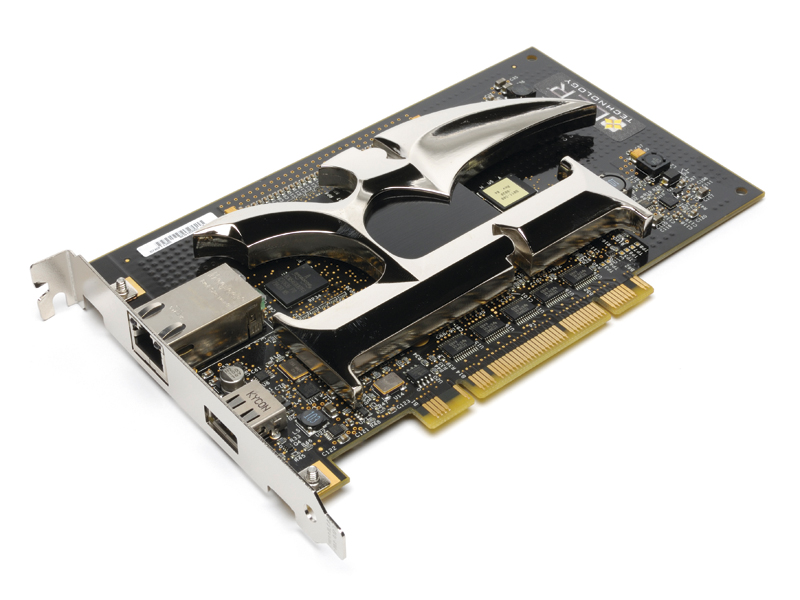TechRadar Verdict
Even if it managed to improve your gaming significantly it'd still be stupidly expensive. As it is, it's easily avoided
Pros
- +
Reasonable concept
Cons
- -
Imperceptible improvements
- -
Ridiculously expensive
Why you can trust TechRadar
PCs often find themselves the playground for over-hyped tech – it's almost as if manufacturers believe gamers will buy anything if you force enough marketing down their throats. Almost.
Cue the latest in a long line of interesting ideas rendered flesh in the hope of making a pretty penny: Bigfoot Networks Killer NIC.
Prioritise gaming
Its premise is interesting: offload management of the Windows network stack from the CPU and prioritise UDP gaming traffic in dedicated silicon. This releases the CPU to concentrate on more important frame rate-boosting stuff, and also improves ping times. That's the theory at least; in practice things aren't quite so exciting…
We tried the card in a pair of machines – our high-powered test rig, and an older machine that would almost cost less than this card. The first machine garnered no obvious improvements, while the improvements from the second were uninspiring to say the least.
Disappointing performance
A marginal increase in frame rates (from 53fps to 57fps in WoW Battlegrounds) and slight improvement in the ping times (from 155ms down to 140ms) hardly got us excited. We couldn't spot any change in Team Fortress 2, Quake 4 or Call of Duty 4 however.
Sign up for breaking news, reviews, opinion, top tech deals, and more.
That's a lot of cash for a few more frames, especially when it's only going to affect network play.
That money's far better spent on CPUs, graphics card and RAM. And if for some unfathomable reason, you still like the sound of this card, at least go for the cheaper K1 rendition.
The core's clocked at 333MHz as opposed to 400MHz, but this won't affect its ability to do its job.
The TechRadar hive mind. The Megazord. The Voltron. When our powers combine, we become 'TECHRADAR TEAM'. You'll usually see this author name when the entire team has collaborated on a project or an article, whether that's a run-down ranking of our favorite Marvel films, or a round-up of all the coolest things we've collectively seen at annual tech shows like CES and MWC. We are one.
